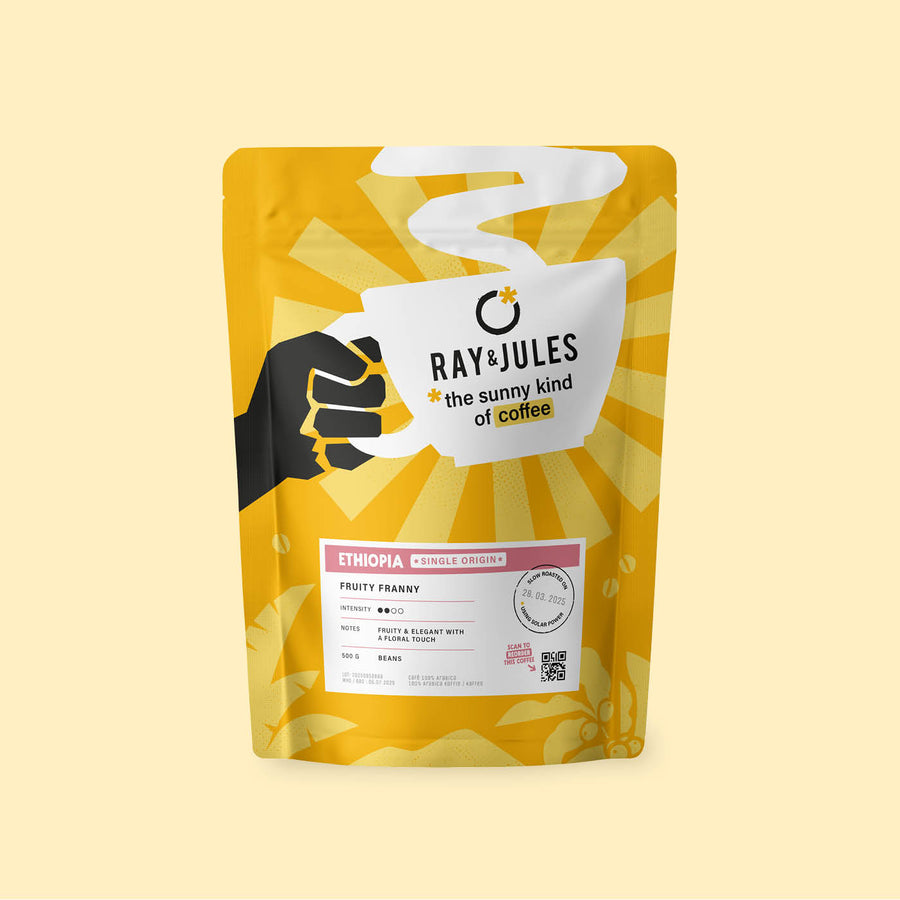the first coffee shrubs
In 2021, Gert and I had the opportunity to trace a bag of coffee beans from Guatemala back to the roastery. A project supported by Nyala Blue around the development of blockchain technology. We started our search at FECCEG; a federation that unites farmer groups in western Guatemala around coffee, but also honey, panela and cocoa. It was a beautiful and engaging experience.
We saw our first coffee shrubs, visited plantations, learned how a cooperative works, drove for hours through breathtaking landscapes and were allowed to experience the coffee farmers' hospitality on a daily basis. But above all, we realised that there is masses of work ánd people behind a cup of coffee.
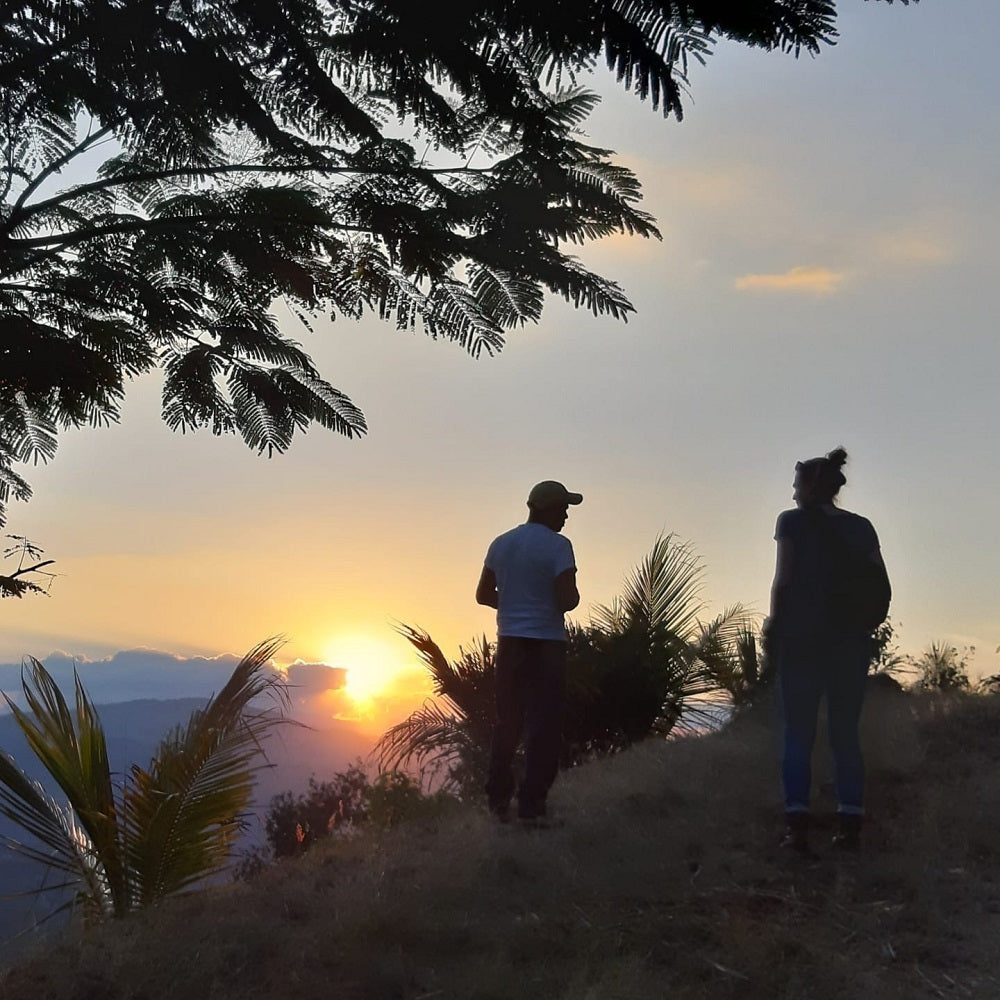
Back home with two coffees
We came back with 2 coffees; one to replace a great coffee from Costa Rica (Powerful Peter) and one with a very special and exceptional flavour profile (and that became Special Sophie). On that trip, we got to know Oscar, our current importer: the man who handles logistics and finances between us as roasters and FECCEG as exporters. Oscar is Guatemalan, but lives and works from Germany with a lot of travelling back and forth to Guatemala. Powerful Peter and Special Sophie each became a success in their own way.
Since then, our expertise around direct trade has evolved a lot and we know what Ray & Jules wants to stand for. A while ago, I heard through Oscar that there were a lot of tensions within FECCEG. Oscar wanted to look for other partners himself. We had a lot of conversations around this topic and we discovered that our visions were remarkably close.
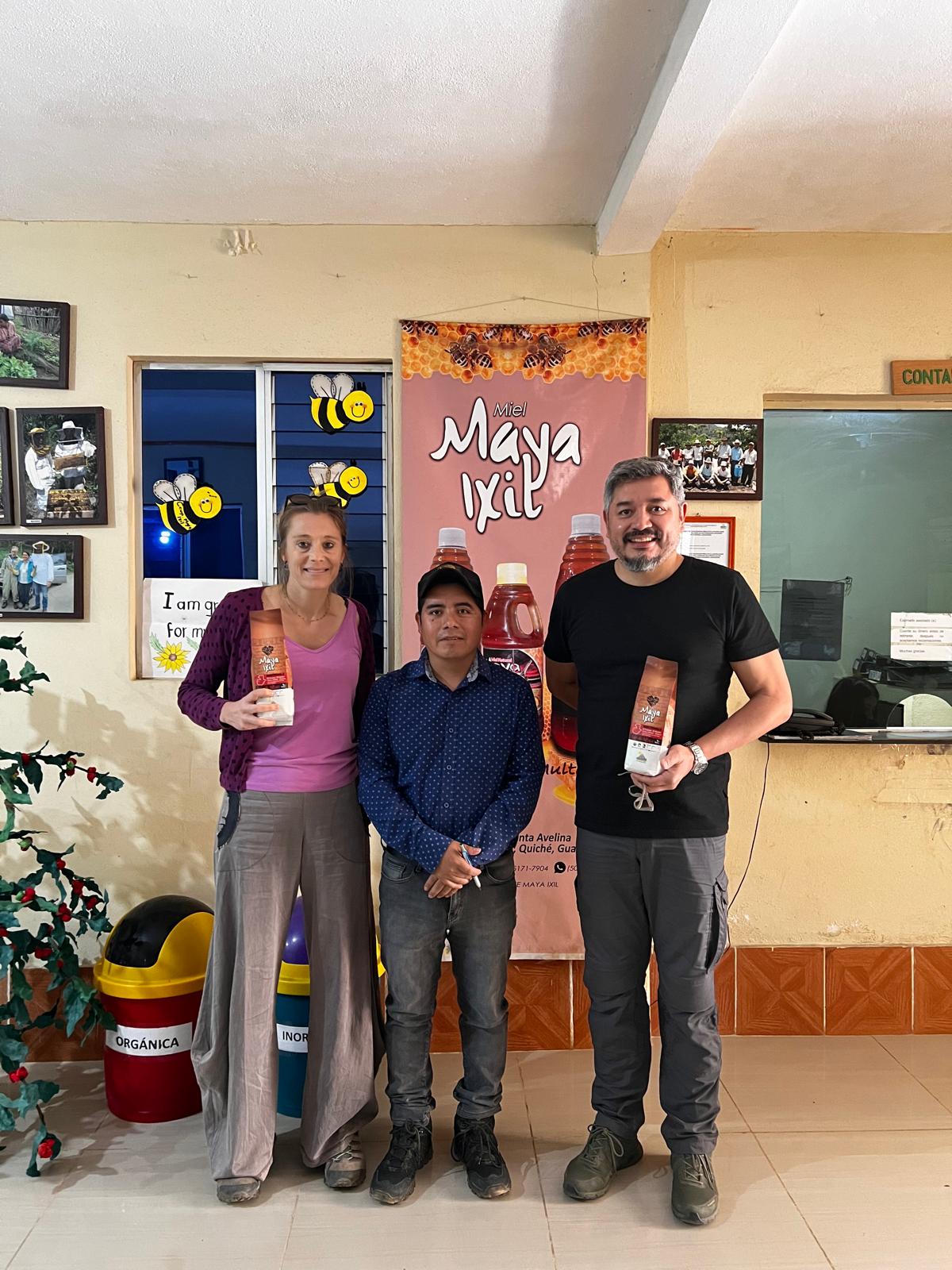
The challenge for Powerful Peter
The challenge was to find a new partnership for our Powerful Peter, which had since become a very popular coffee, where we know:
- who we buy from
- how much that person earns from it
- how they work
- what other people are involved in the chain
- ...
Without changing the flavour profile or quality too much in the process. Oscar suggested we go to Guatemala together and find out in concrete terms. No sooner said than done.
Since then, our expertise around direct trade has evolved considerably and we know what Ray & Jules wants to stand for
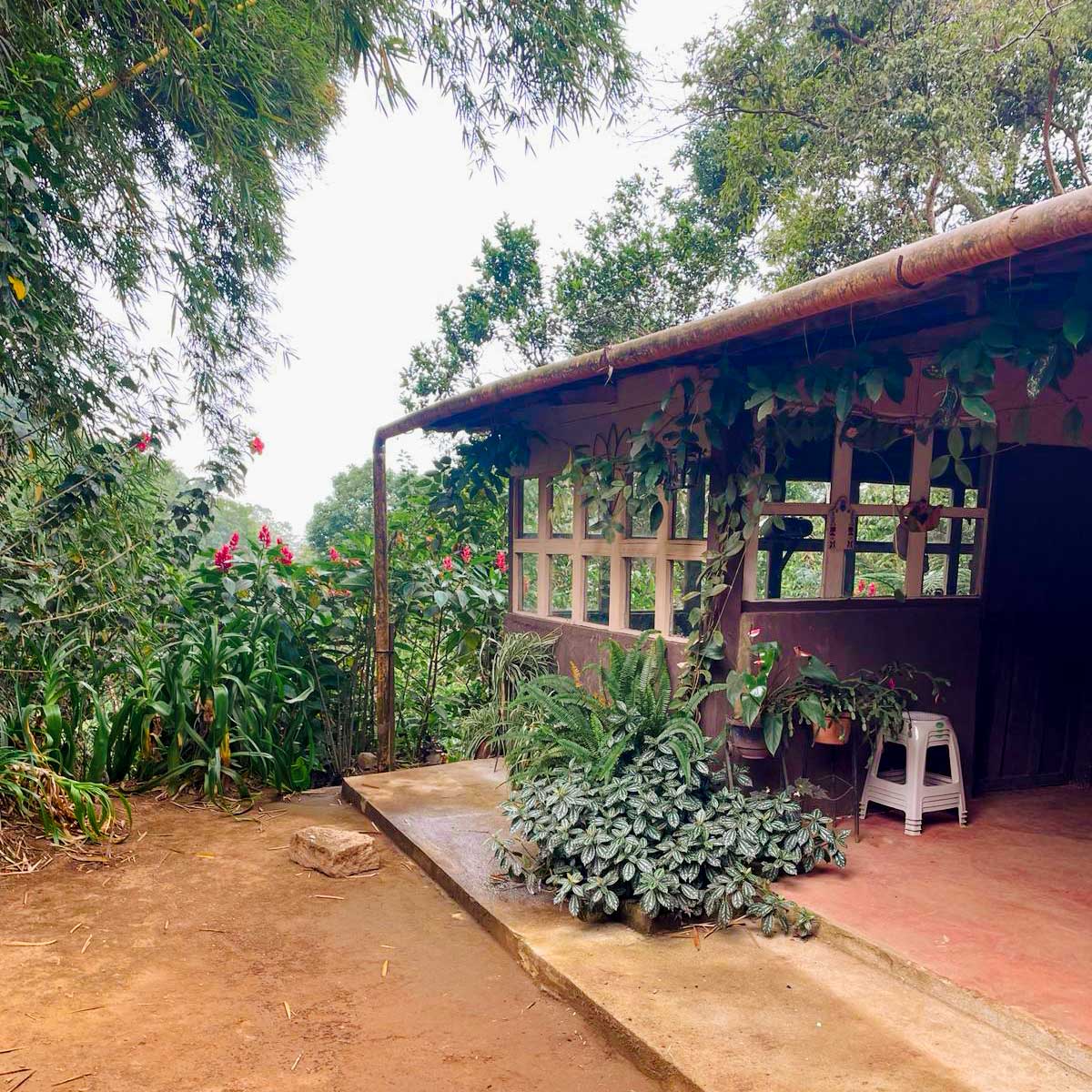
San Florencio – Doña Olga
Beforehand, Oscar's good friend/coffee expert, Wilfriedo, had reviewed my query and he suggested visiting doña Olga's farm. He saw a potential match, among some other options. A few months before the trip, I did a video call with Olga in advance. We called with a gang of screaming children in the background and that was already immediate fodder for conversation. Olga told me that she was at work at the time because she cannot make a sufficient living from the proceeds of coffee. She works full-time as a teacher in a primary school in the city of Xela, every weekend she goes to her farm in the mountains to work.
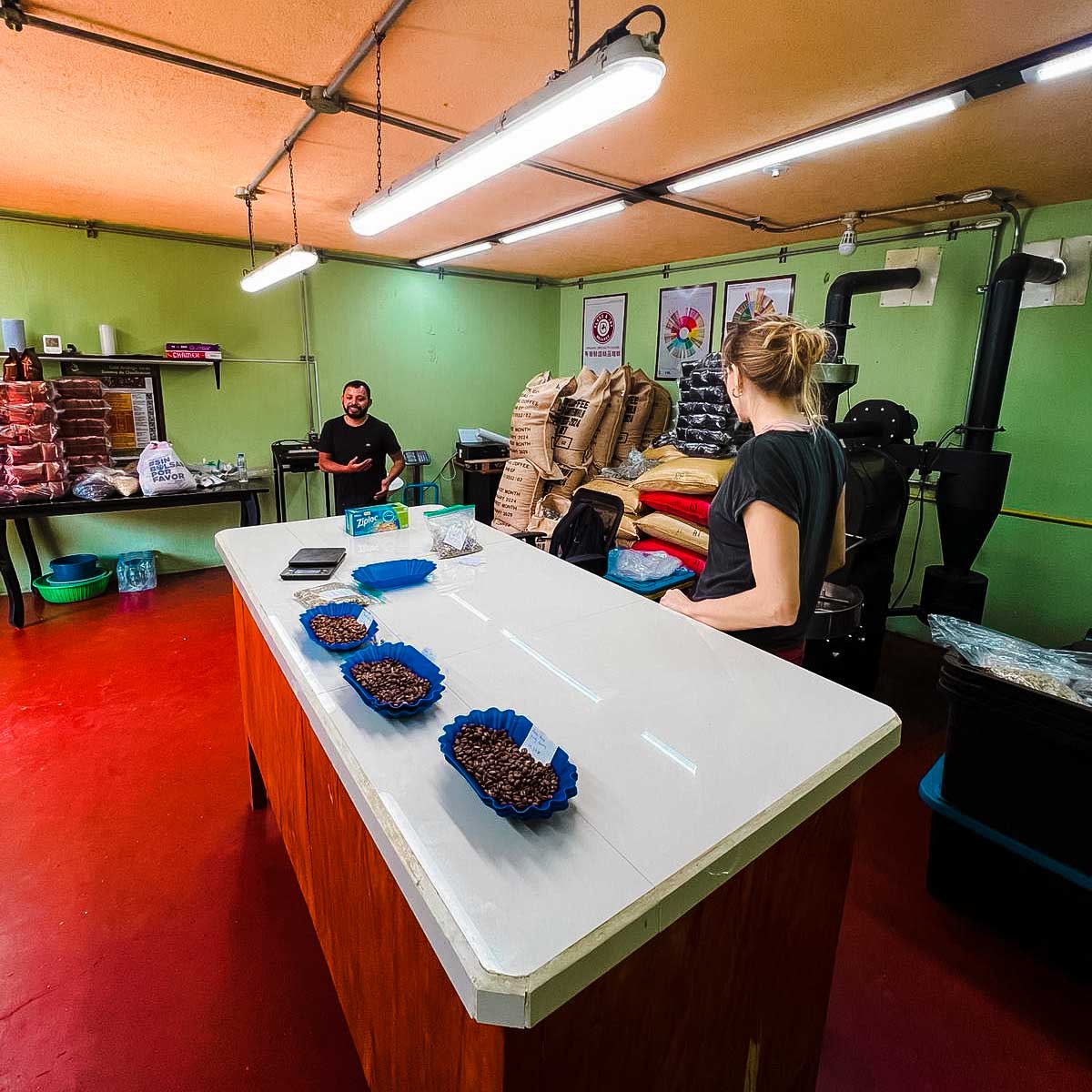
A few months later, I landed in Guatemala City. Wilfriedo took Oscar and me to his ‘lab’/roastery. An array of coffees was prepared on the cupping table. Piece by piece gems. Doña Olga's coffee was among them. I gave her a high score without knowing it was her coffee. A good basis for what was to come, because not much later we saw doña Olga in Xela. I ended up in the car with her, her daughter Alejandra and granddaughter Isabella. We drove almost 3h to the famous finca ‘San Florencio’ along winding, bad roads into the mountains. For the last few kilometres, Alejandra stopped every so often because she recognised a street dog. She gave each dog a pet, some food and drove on. It was already dark and late when we arrived.
I was tired but this place breathed tranquillity. Doña Olga and Alejandra warmed up the kitchen with some wood and we were served another delicious meal, after which Doña started narrating. That first evening, Doña Olga and Alejandra overwhelmed us with all the challenges they struggle with on a daily basis. They never know who will buy their coffee, let alone at what price. They do not know enough about the quality of their coffee, have no money to invest in the plantation and do not earn enough themselves to live and work on the finca. They cannot find labour, all the young people go to the United States ...
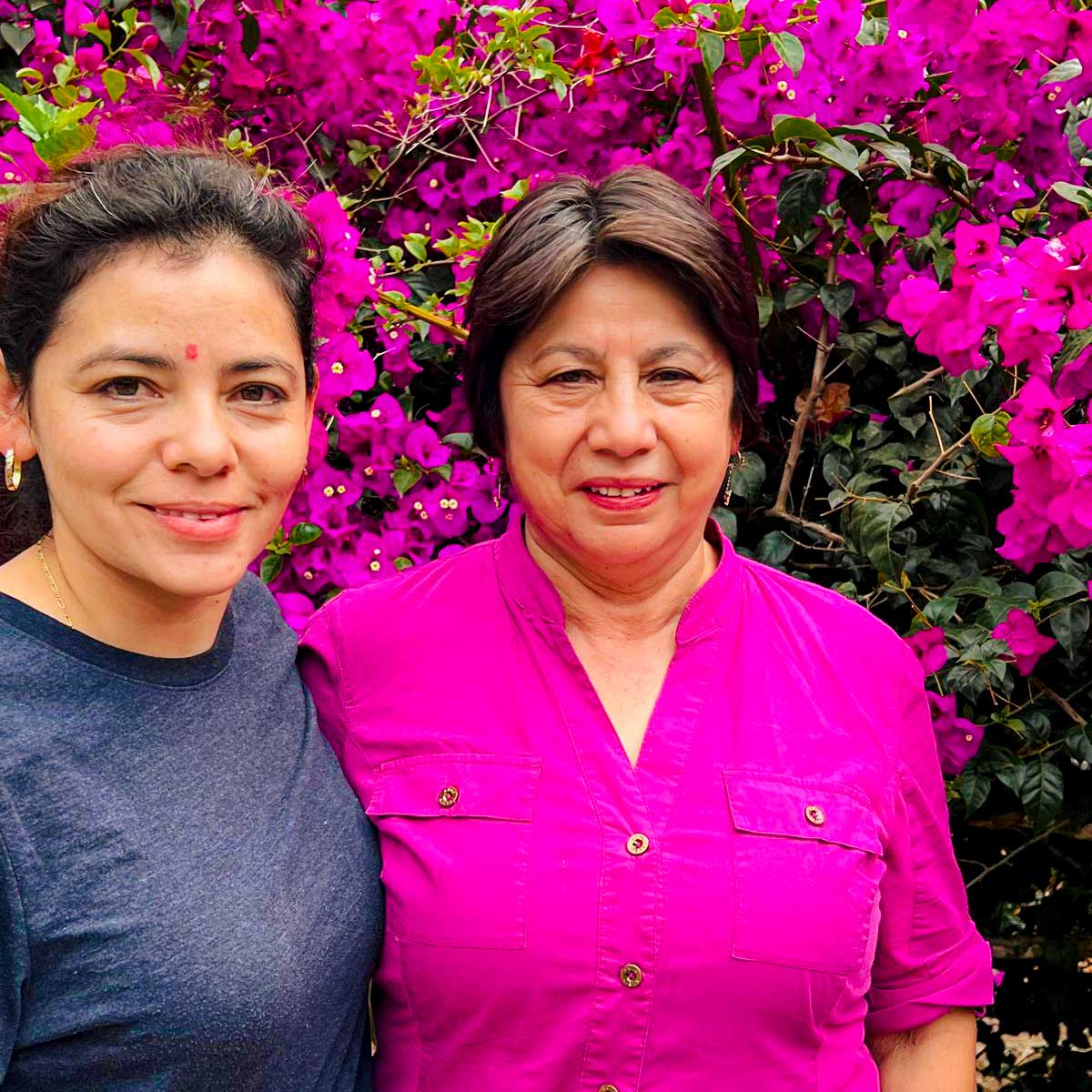
The single Olga made sure her 3 children studied to avoid getting into coffee farming given the financial uncertainty. ‘Why is she still doing this!’ she repeatedly asks herself aloud. And she immediately gives the answer herself: ‘Porque llevo el café en la sangre, el café significa todo para mi’.
That night I lay awake. So many problems... what on earth do I come here to do? In the morning, the birds whistled us awake. Never before had I heard so much singing, it was beautiful. I walked outside and was overwhelmed by the paradise in which the finca lies. After all, the previous evening it was too dark to see the beautiful flowers, tropical plants, ancient magnificent trees, birds of all colours.
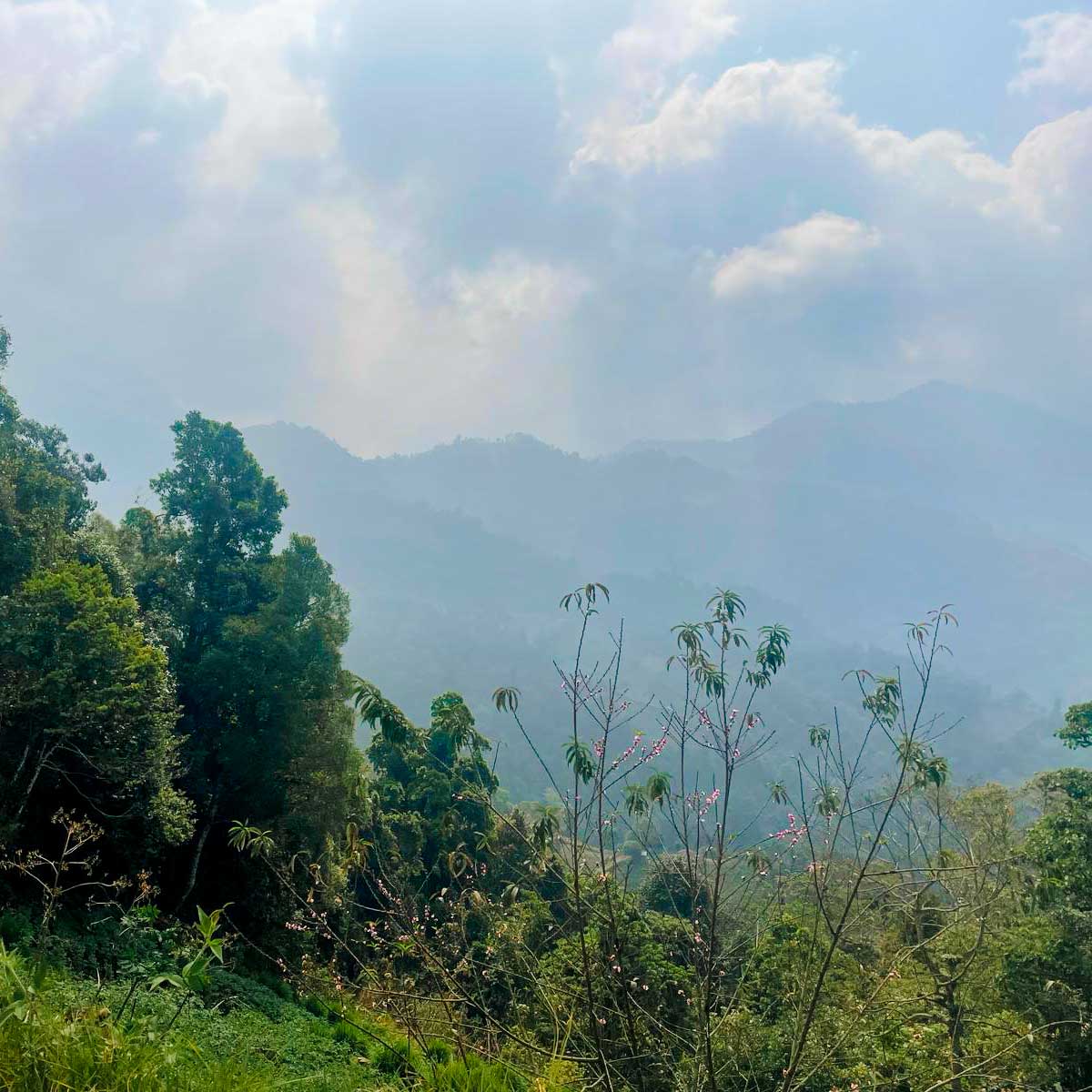
We were handed a cup of delicious coffee and Alejandra took us for a short tour. The time in the following days at San Florencio caught up with us at lightning speed with brisk walks, an excess of food, tortilla making course, lots of conversations about coffee, fauna & flora and life, taking care of the street dogs, visiting her cousin dona Alba's nearby finca, helping where can or was allowed, ... . And then it was time, we had to go and so time to talk business.
Doña Olga, Oscar and I together at the table. It was not going to be a difficult conversation. The price I was willing to pay had already been checked off with Oscar and Wilfriedo and based on the quality of the coffee. Doña Olga's costs we also knew, in the meantime we had seen that she has to invest in her plantation - and thus have enough left over.
The harvest was just about over when we were there and she had over 6 tonnes of coffee. The idea was to buy all that would still be insufficient to supply ‘Powerful Peter’ for the year, and supplement it with similar coffee from producers in Santa Avelina.
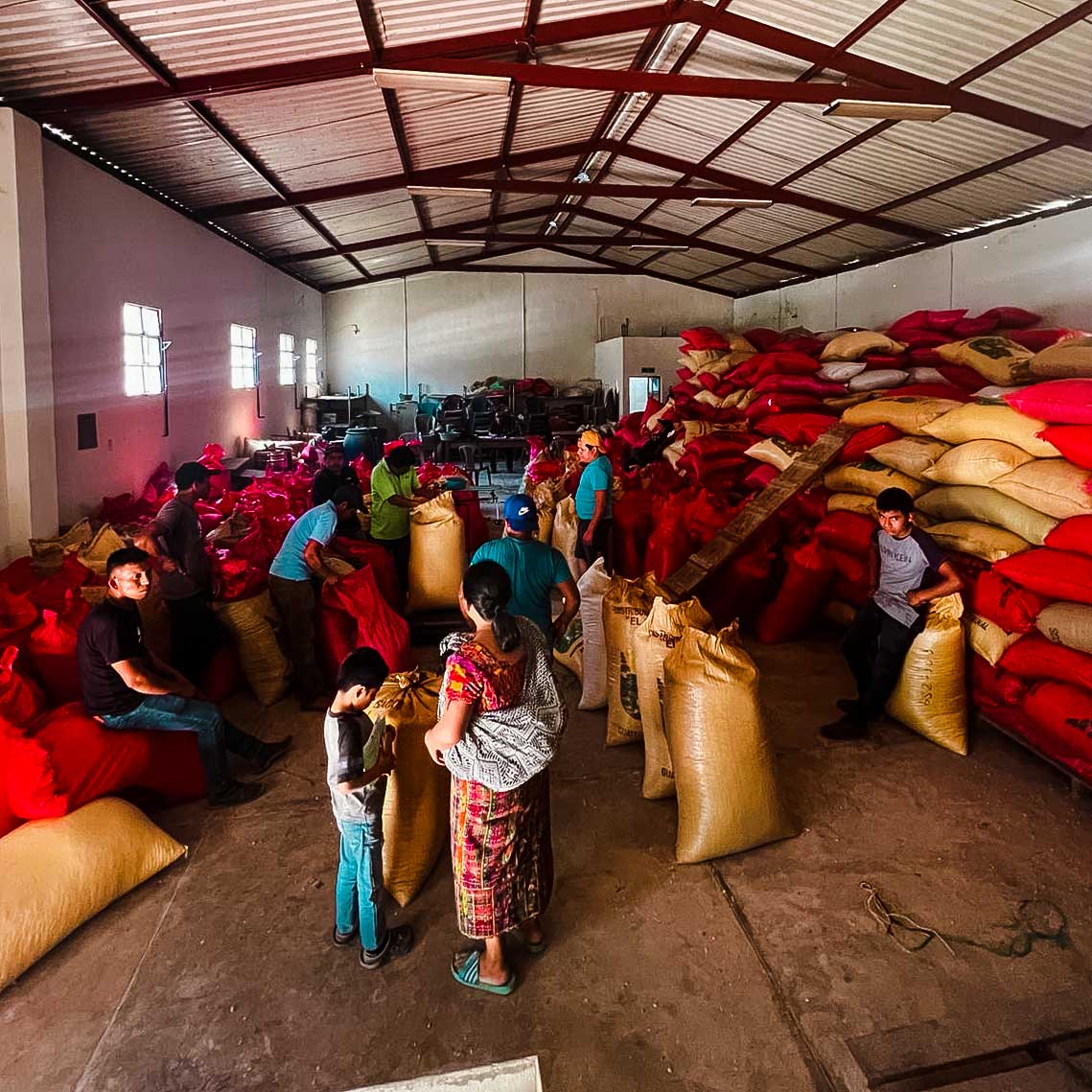
The deal was swift: doña Olga reacted very emotionally to our ‘deal’. She said that this is the first time she feels so valued, that the quality of her coffee is taken into account, that she can sit at the table and have a say in pricing. The first time she knows to whom and where her entire harvest goes, that she can reinvest in her plantation and still get something out of it. In short, the first time she believes it is possible to make a living from growing coffee...
Doña Olga reacted emotionally; this is the first time she believes it is indeed possible to live off coffee farming
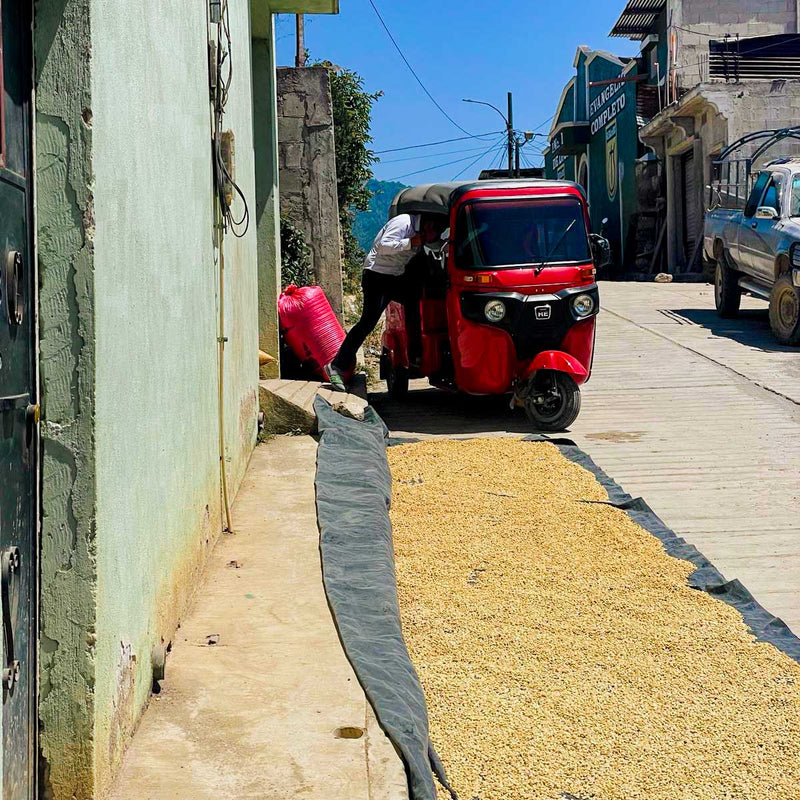
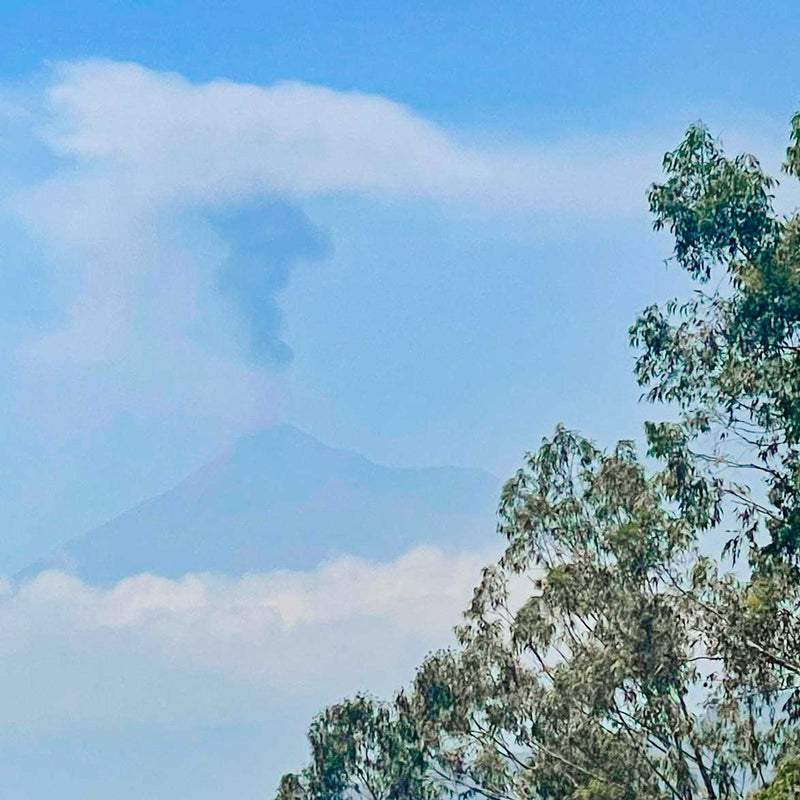
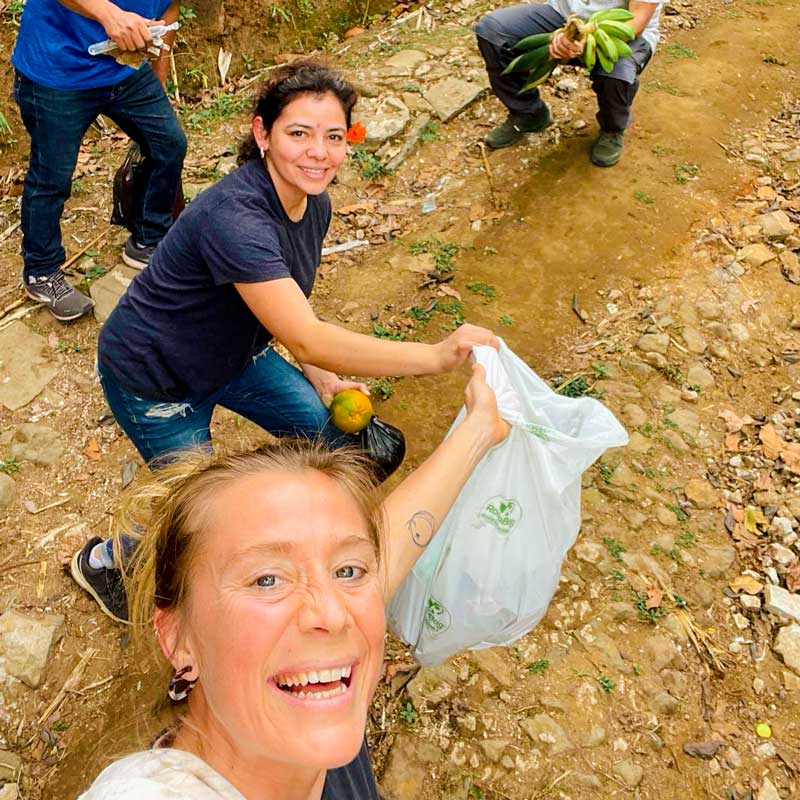
Coffee can connect people
I am not writing this down because I think myself or Ray&Jules are great, but rather because the skewed relationships in the world are underexposed. We think it's normal to pay just 2 euros for a cup of coffee, but don't consider what's behind all this. It has only become clearer to me that with Ray&Jules we also need to tell this story; one where we explain how the chain works, who works there and who gets what.
Olga's story is a drop in the ocean, but already a start. When we arrived in San Florencio, I was overwhelmed by the drama, despair and endless challenges in her life. A few days later, I left there feeling warm, taking in the energy and hope in the eyes of these beautiful women. Some corny talk, but surely this is what it's all about; coffee has it in it to connect people !

